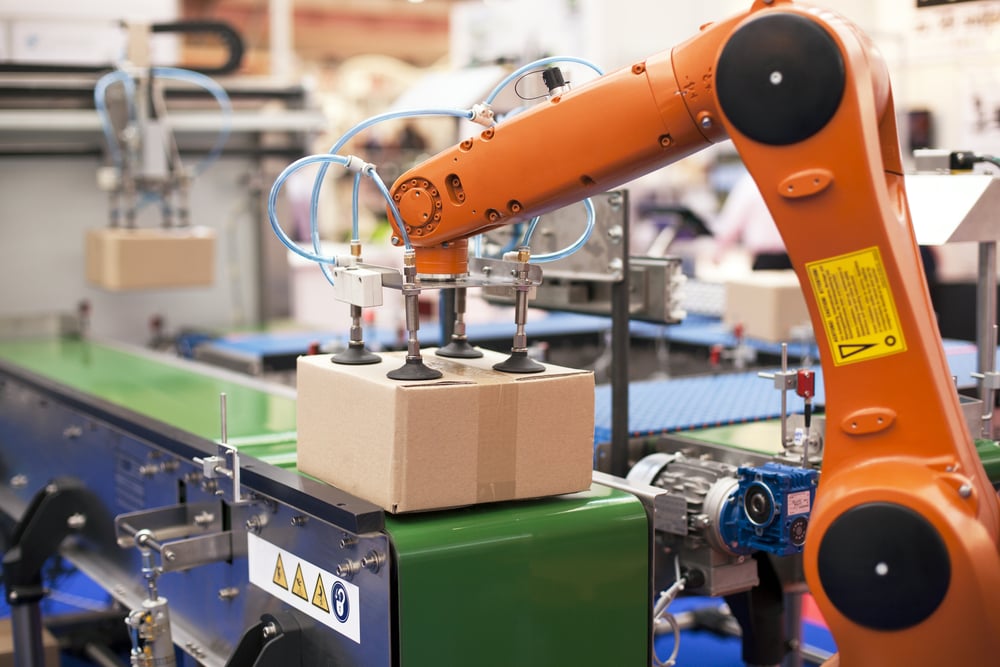
North Carolina has a rich history of revolutionary inventions and ingenious entrepreneurship. Our state is especially known for business, tourism, and education. It’s safe to say that the past has been really good in the Tar Heel State.
But even with all of the innovation and growth in our past, there's still a ton of potential in our future, and with the state's new strategic plan, North Carolina is determined to write the next chapter of economic growth.
Good things often take lots of planning and measuring. Bojangles, the flavorsome fried chicken founded in Charlotte, didn’t become delicious by accident... and the North Carolinian makers of Cheerwine didn’t rely on random chance to perfect their legendary soda. In both cases, a recipe was required.
So, in a similar fashion, North Carolina’s Department of Commerce put together their own recipe for making the state “first in talent.” And, unlike some of our favorite recipes, some of the key ingredients are no longer a secret!

Economic growth, even at the state level, begins with well-trained individuals, and North Carolina is committed to educating our future professionals.
By 2030, the state, which produced the first public university, plans to mix-in 2 million high-quality postsecondary credentials among the labor force. That’s fancy speech for college degrees and technical certifications for trades, like HVAC and welding. Both types of credentials are beneficial, but certain companies are on the hunt for people with specialized skills beyond what can be learned in a classroom setting.
Luckily, there’s already a good amount of trade schools in the Tar Heel State. In fact, 2020 saw the number of North Carolina-based apprenticeships rise to 12,244. That’s a great number, but we want to keep this trend going. After all, more apprenticeships means more skilled workers for hire, which translates to more productivity and less employee turnover.
In its mission to become the national leader in these work-based learning opportunities, the state plans to add incentives for businesses who choose to open their doors for apprentices and student workers. Then, to keep students and job-seekers in the know, the state is exploring a marketing campaign to promote helpful information about these opportunities.
RESOURCE: Job training assistance available from the North Carolina Department of Commerce.

North Carolina has a huge population of veterans who work hard, have plenty of skills & experience, and, according to 75% of employers, are easier to manage than the rest of their staff.
It makes sense to hire veterans, and the state of North Carolina wants to prove it through employment programs for former military personnel.
The plan includes an increase in veteran hiring events and better assistance for those with disabilities or mental health challenges, including PTSD.
RESOURCE: North Carolina for Military Employment (NC4ME) is a comprehensive public-private partnership designed to make NC the number one state for military employment.

Several businesses in our state have partnered with each other, colleges & universities, and workforce development centers to address needs within their industry.
One of the more fun examples of this is called the Wilmington Regional Film Commission. This sector partnership includes the City of Wilmington, the Cucalorus Festival, Enterprise car rental agency, Local 600 International Cinematographers Guild, and Homewood Suites by Hilton. They have all come together as an effort to position the city as a hub for film production.
At its heart, this partnership serves as an avenue for filmmakers, crew members, hotels & lodging providers, and marketing agencies to connect and do business together. They are able to combine some of their resources to bring independent documentaries, TV series, and feature films to the city. Everyone involved feels the benefits.
More of these sector partnerships could be good for our state. North Carolina is interested in fostering similar partnerships that span larger geographical regions and include a wider variety of jobs. Our state plans to continue advocating for these partnerships
as a way to strengthen industry weak points and allow organizational leaders to take ownership of improving the economy.

There are undoubtedly some brilliant business ideas brewing all throughout our state. But for anyone anywhere, who’s ever tried to make their entrepreneurial dreams come true, they know that some unexpected barriers to success are bound to come up.
That’s why North Carolina is expressing interest in getting rid of some of the red tape involved in running a business. They want to make operations easier by teaching the basics of business knowhow to business owners and leveling the playing fields (financial and otherwise).
RESOURCE: North Carolina office of the U.S. Small Business Administration

If you really look into it (yes, a quick Google search counts), our state is a great place for women to launch and grow their businesses. Take Pineville, North Carolina’s AR Workshop for example. Maureen Anders and Adria Ruff (pictured above), the female geniuses behind the brand, launched their in-demand Etsy shop into a brick-and-mortar business; eventually expanding to 150+ locations nationwide. This is a great win for the state, who’s hoping to see more women-owned businesses in the mix.
On another note, North Carolina is home to 12 HBCUs (Historically Black Colleges and Universities) and holds the top spot for undergraduate HBCU attendance. Because these institutions create thousands of jobs and produce tons of graduates with STEM degrees, North Carolina is looking to increase the funding for these organizations.
RESOURCE: The North Carolina Minority/Women Business Enterprise (MWBE) Coordinator’s Network

In the tech world, some North Carolina organizations, like NC State and the Department of Commerce, are preheating the oven. They’re on a mission to help businesses get comfortable with the swarm of new technology.
For some entrepreneurs, one machine—just one technological upgrade—can send their productivity through the roof. That’s what happened with Quality Machine and Fabrication. After acquiring some Computer Numerical Control (CNC) machines, they have the ability to manufacture ultra precise, metal designs with ease.
You’ve probably guessed that businesses all over the world are relying more and more on technology, but this is especially relevant to North Carolina’s economy. Since 2013, our tech industry has grown at twice the rate of the national average!
RESOURCE: CESMII – the Smart Manufacturing Institute

The COVID-19 pandemic has certainly wreaked havoc. But challenging times can provide us with several learning opportunities. If our state has learned anything over the past two years, it’s this: we NEED homegrown products.
Expect North Carolina to invest in the hometown production of lumber, computer parts, and all sorts of crops.

The beaches of North Carolina are many things...our coast is a beautiful place, but it’s also a windy place! As a key player on the East Coast, our state is ready to convert these high winds into a wealth of natural energy.
For more detailed discussions about this topic, check out our resources on Offshore Wind (OSW) energy.

A lot has happened in the past two years...but perhaps the most obvious development, on the economical front, was the necessity for online communication.
Before 2020, had you ever heard of Zoom? Probably not...but now it’s a household name! Since then, you’ve met with your coworkers on Zoom. Your doctors appointments were on Zoom. Heck, even your grandma was on Zoom! And when we aren’t talking to each other online, we’re doing our shopping over the internet...Not just for shoes and children’s toys, we’re buying groceries and hot meals online too!
There were moments, during the peak of the pandemic, where these internet services kept the world up-and-running. But what good are these online opportunities if people can’t access them when they need to?!
That’s why North Carolina is seeking to expand broadband access; making it easier for people to get high-quality internet on all their devices whenever and wherever they need it.
Not only does this improve 21st century life for everyday people, but it’ll also help small business owners and attract top-notch, nationwide employers to expand into our state.
RESOURCE: North Carolina Broadband Infrastructure Office

It’s no secret that North Carolina has some BIG plans for the near future...but they have no intentions of abandoning their roots. Our state is known for charming little towns, like Mayberry, as much as it is for metropolitan Charlotte. Of course, there are pros and cons that come with both big cities and rural towns.
One recent concern, for our less populated areas, has been a lack of jobs. To combat this, North Carolina is finding ways to bring good jobs into these communities.
Smaller cities, which used to work alone in creating jobs, will be encouraged to lock arms with other nearby places and become more regionally-minded in economic development.

Now that you know the recipe behind North Carolina’s economic development plan, which is your favorite ingredient in the mix?
Which strategy or tactic will be like Krispy Kreme’s “Hot Now” sign; causing big employers to pour into our state like customers eager for a melt-in-your-mouth, glazed doughnut?
Is it the apprenticeships? The technology? The small business support?
Whichever ingredient you’re most interested in, you can read more about it in the original Economic Development Plan, available here.
These Stories on North Carolina
No Comments Yet
Let us know what you think